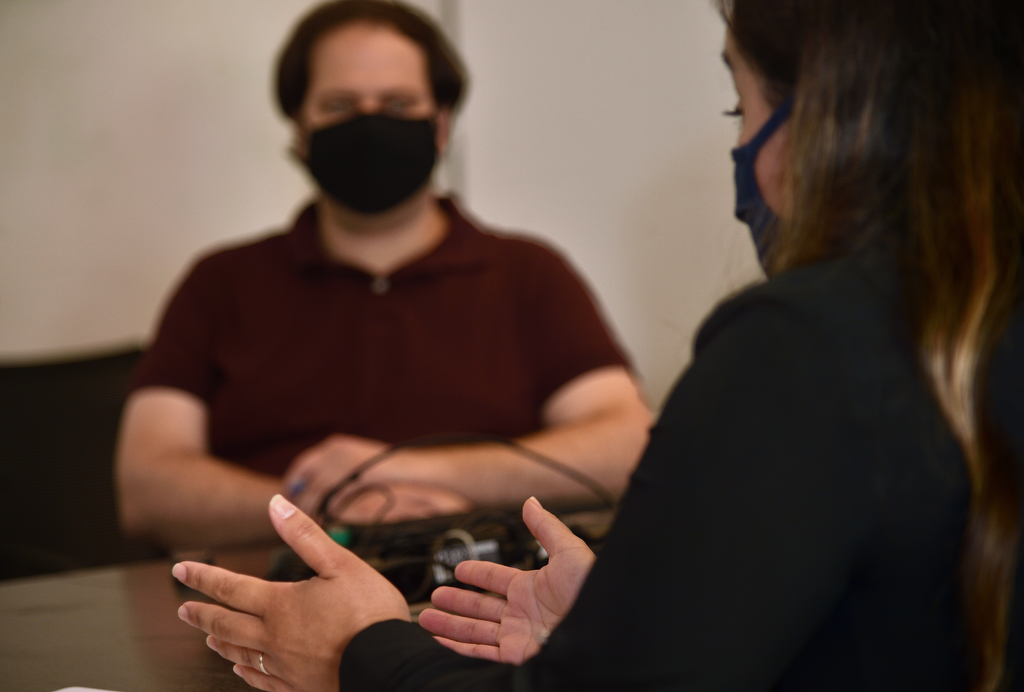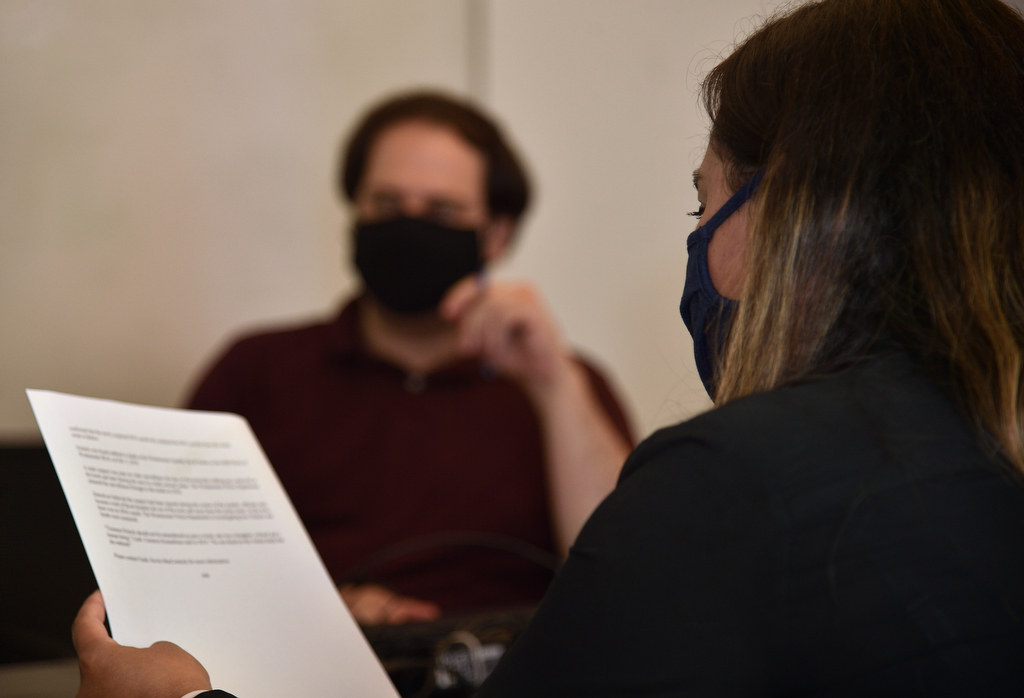Thanks to good old-fashioned detective work and using a private company’s sophisticated DNA sleuthing for the first time, the Westminster Police Department was able to arrest and charge a man suspected of murdering a young woman.
Aryan Vito Smith, 26, was arrested in May on suspicion of killing Treeanna Nichols, a 22-year-old Pasadena woman who was found stabbed to death at the Westminster Quality Inn & Suites. Smith, who lived in Westminster, was charged with murder and is being held in lieu of $1 million bail. He has pleaded not guilty.
The trail to finding Treeanna’s killer started out cold.
Nichols was found dead on Feb. 5, 2018, after police were called when family reported they could not reach her. At the time, police found blood at the scene and a trail of blood outside Nichols’ room, which led them to believe someone entered with Nichols, there was a struggle, and then that person left.
A month later, Westminster police released surveillance video showing a man at the hotel whom they believed committed the stabbing. The video showed someone wearing a hooded sweatshirt walking up some stairs, then leaving shortly afterwards.

Westminster Police Department talks about a homicide case that recently lead to an arrest.
Photo by Steven Georges/Behind the Badge
However, despite receiving some tips from the footage, the case stalled, said Det. Daniel Flynn, who has been working the case alongside Det. Norma Vasquez.
“Unfortunately, they didn’t really lead us anywhere,” Flynn said.
Det. James Wilson, since retired, also worked on the case in its early stages.
After recovering some DNA from the scene, police submitted it into the Combined DNA Index System, or CODIS. The national DNA database is maintained by the FBI and commonly used by law enforcement.
No hits.
So Wilson and the Orange County District Attorney’s Office reached out to Parabon NanoLabs, a private DNA technology company based in Reston, Va. Parabon professes to develop “next-generation therapeutic and forensic products” from the expertise of its team members in the fields of bioinformatics, immunology, chemistry, computer science and other disciplines.
With Westminster police’s sample in hand, Parabon went to work.
CeCe Moore, chief genetic genealogist with Parabon, is based in Orange County. She worked on the case and took a special interest in it, given her local connection. She noted that while other methods try to match DNA based on 20 markers — and can make connections between parents, children and full siblings — Parabon can do so based on more than 850,000 markers.
That extensive capability means Parabon can create a comprehensive genealogical record — a really big family tree, so to speak.
“It gives us much more power to be able to predict distant relatives,” Moore said.
The company does not use private DNA commercial databases, such as 23andMe.
In addition to the DNA matches, Parabon can make connections using publicly available information gleaned from census records, death certificates, social media and newspaper archives.
Still, even with Parabon’s vast resources and experience, there initially lacked a match strong enough to be worth pursuing. But they did learn quite a bit, such as the suspect’s gender, ethnicity and region where his ancestors were from.

A Westminster Police Department undercover detective and Norma Vasquez talk about a homicide case that recently lead to an arrest.
Photo by Steven Georges/Behind the Badge
“It’s pretty incredible, the work that they do,” Vasquez said.
Despite the lack of an initially viable match, Parabon’s quest didn’t end. For more than a year, the company re-checked Westminster’s DNA sample against a continually evolving and growing field of information.
“The status of a case can change from one day to the next,” Moore said. “If a case doesn’t look viable, that doesn’t mean it’s the end of the road for genetic genealogy. There’s always hope.”
Finally, in April 2020, out came their big break: a DNA match.
How the case went from cold to hot during that time relied on the right person submitting DNA to a database that Parabon was able to use to make a connection, Moore said.
Then it was Westminster’s turn to push the case forward. With the new match, Vasquez said her team obtained search warrants and conducted surveillance. They couldn’t rely on Parabon’s research alone.
“It’s up to us to continue the investigation, to basically confirm that it was this person,” she said.
Westminster police then served a search warrant to acquire a DNA sample from the suspect gleaned from Parabon’s research. The sample then went through Orange County’s Rapid DNA system, which quickly matched it against what police found in 2018 at the motel.
In May, police arrested Smith without incident.
Westminster detectives have declined to say how Smith and Nichols knew each other, or a possible motive. Vasquez said the case is still being investigated.
“Treeanna Nichols should not be remembered as just a victim. She was a daughter, a friend and a human being,” Cmdr. Cameron Knauerhaze said in 2018. “No one deserves the violent death that she endured.”
Westminster police are excited about the breakthrough, as it’s the first time they’ve used Parabon to find a DNA match.
“Westminster police detectives have tirelessly worked this case the past two years, never letting the trail get cold,” Cmdr. Kevin MacCormick said. “The arrest in this case is a testament to their hard work and dedication.”
 Behind the Badge
Behind the Badge



